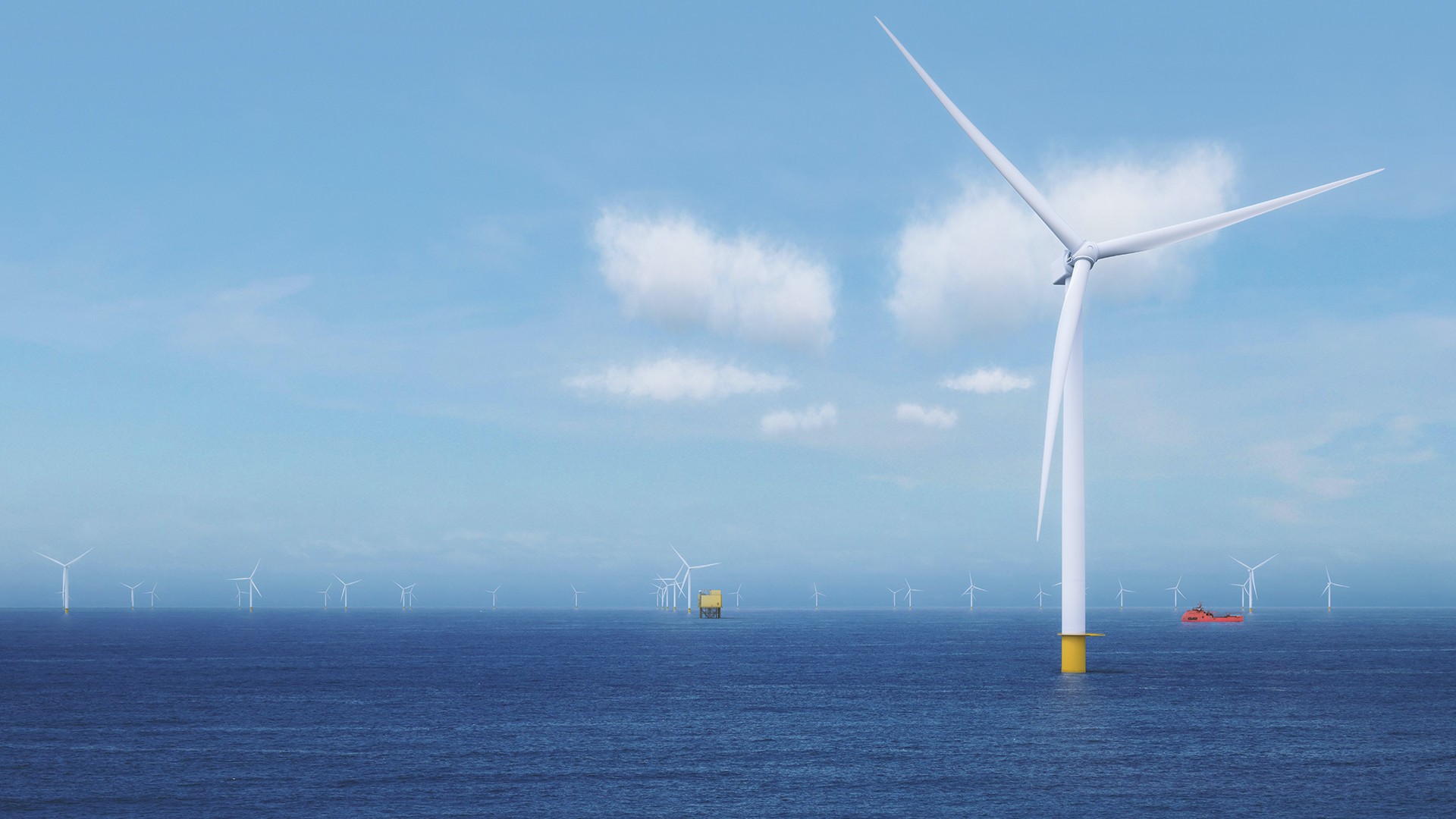| | | | | | | Presented By Equinor | | | | Axios World | | By Dave Lawler ·May 24, 2021 | | Welcome back to Axios World. - We're starting tonight (1,610 words, 6 minutes) in Libya, with stops in Belarus, Mali and more.
New arrival? Sign up | | | | | | 1 big thing: Will Libya's moment of unity last? |  | | | A rally in Tripoli last January. Photo: Hazem Turkia/Anadolu Agency via Getty Images | | | | Six months after a ceasefire ended the most recent civil war, the UN and U.S. have been expressing a rare sentiment: optimism about events in Libya. The state of play: Libya achieved an unexpected breakthrough in March by forming a national unity government that was recognized by all the major players from opposing sides of the barricades. - Now all the country has to do is expel a medley of foreign fighters, unify its financial and military institutions, decide on a system of government, grapple with 10 years of on-and-off civil war (and four decades of dictatorship before that), and hold elections — all by the end of the year.
- There's also the "elephant in the room," says Mohammed Ali Abdallah, special envoy to the U.S. for Libya's Government of National Unity. Khalifa Haftar, the rogue general who attempted to overthrow the Tripoli government, remains a force in eastern Libya.
- Haftar's offensive was repulsed last year when Turkey intervened on behalf of the Tripoli government.
What he's saying: In an interview with Axios, Abdallah acknowledged that Libya's recent history is littered with transitional governments that overstayed their mandates while failing to deliver. But he insists that this time is different. - "People are starting to realize that, you know what, those who were part of the [Moammar Gadhafi] regime or those who were part of the revolution, people who are from the East or from the West, people who were supporting a military takeover versus those who were holding onto the democratic process — the rivalries and the polarization are starting to blur."
- The leaders of the transitional government — Prime Minister Abdul Hamid Dbeibah and Presidential Council chairman Mohamed al-Menfi — are intent on delivering elections because they know their political prospects will collapse if they don't, Abdallah contends.
- Yes, but: A recent report from the International Crisis Group notes that Dbeibah was accused of buying votes to get his job and reportedly wants to keep it for at least two years.
- Still, the report notes, "The seamless power transfer — with no armed group mobilizing to prevent it and no foreign power trying to obstruct it — is historic for a country awash with militias and where foreign meddling has become the norm."
The regional winds have been helpful, including recent reconciliations between Haftar backers Saudi Arabia and the UAE on the one hand and Turkey and Qatar on the other. - Most promising, Abdallah says, is the dialogue between Egypt (another Haftar backer) and Turkey, both of which will have big roles to play in stabilizing Libya. The transitional government has even proposed a trilateral summit in Libya, he says.
That leaves just one major external player that "actually benefits from an ongoing crisis in Libya," Abdallah says: Russia, whose interests are represented by mercenaries from the Wagner Group. - Moscow has indicated that the mercenaries will withdraw if Russia is awarded infrastructure or mining projects or, most controversially, is allowed to establish a permanent military presence, Abdallah claims.
- Moscow hasn't made that request explicit but has long wanted a base on the southern shore of the Mediterranean and is trying to prey on Libya's "vulnerability," Abdallah claims.
- Like the UAE, Abdallah says, Russia has lost confidence in Haftar but continues to view him as a "bargaining chip."
Abdallah takes a very different tone when it comes to Turkey. - Ankara has a "legitimate military presence that's helping us as a country," he says.
- Between the lines: The UN and Libya's own foreign minister have called on all foreign fighters to leave Libya. Abdallah says the militias Turkey brought into the country should leave, but Turkey's troops are a special case.
|     | | | | | | 2. Libya part II: The U.S. role |  | | | Dbeibah (right) shakes hands with Norland while Hood (C) looks on. Photo: AFP via Getty | | | | There is one country that should intervene more strongly in Libya, Abdallah says: the U.S. Driving the news: The Biden administration last week dispatched acting Assistant Secretary of State Joey Hood to Tripoli alongside Richard Norland, President Biden's special envoy to Libya, in a show of support for the unity government. - The transitional government wants the Biden administration to pressure the UAE and others to stop meddling in Libya while helping Libya develop its institutions and prepare for the elections.
- Abdallah notes that many senior officials in the Biden administration witnessed Libya's collapse while serving in Barack Obama's administration. Some may see an opportunity to "make a wrong a right," he says.
What to watch: Abdallah concedes that there are major constitutional and security gaps to be filled before an election can be held, and he even acknowledges that it might become impossible to hold a vote in December, as planned. - But he contends that active U.S. involvement could make the difference.
- 'The U.S. has a chance to turn a very bleak story into a very positive story, and I think the U.S. could use a few success stories in the region right now."
|     | | | | | | 3. EU says Lukashenko will pay price for hijacking |  | | | Raman Pratasevich. Photo: Artur Widak/NurPhoto via Getty Images | | | | The European Council has called on all European carriers to avoid Belarusian airports and airspace after a dissident journalist was hauled off a plane on Sunday in a state-sanctioned hijacking. Driving the news: A Ryanair flight was forced to make an emergency landing in Minsk on Sunday after being notified of a security threat. - Passengers on board said Raman Pratasevich, a key figure in recent anti-government protests, began to panic and told them he was facing the death penalty in Belarus. He was arrested along with his partner, Sofia Sapega.
- A video circulated online today in which Pratasevich — likely under duress — says that he is in good health, acknowledges his role in organizing the protests, and says he's in pre-trial detention in Minsk.
- Bizarrely, Belarusian authorities claimed today that the bomb threat that forced the plane to reroute was made in the name of Hamas.
- Both Ryanair and the EU have directly blamed the government of President Aleksandr Lukashenko. Following a meeting on Monday, the European Council called for additional sanctions "as soon as possible."
What to watch: The EU's response has been under close scrutiny, as the bloc has been accused of limiting itself to strongly worded statements in the past in lieu of strong collective action. |     | | | | | | A message from Equinor | | How one company is helping speed up the energy transition | | |  | | | | Equinor plans to power more than 1,000,000 homes in New York with homegrown, renewable energy. Why it's important: With a net-zero target for 2050, Equinor is pursuing the development of offshore wind projects in the U.S. and becoming a leader in the country's growing offshore wind industry. | | | | | | 4. Global news roundup |  | | | Illustration: Aïda Amer/Axios | | | | 1. Military officers in Mali arrested the president, prime minister and defense minister tonight, Reuters reports. - The backstory: The move comes after a Cabinet reshuffle that saw two members of the military junta that took power last August replaced. If this proves to be another coup, it would be the West African country's second in nine months.
2. The State Department today issued a "Do Not Travel" warning for Japan, citing the surge in coronavirus cases, Axios' Yacob Reyes writes. - What to watch: The Tokyo Olympics are scheduled to run from July 23 to Aug. 8, with thousands of athletes from all over the globe set to arrive in the city.
3. Iran has reached a deal with the UN's nuclear watchdog to continue inspections of its nuclear sites for another month. - Why it matters: The extension allows for more time to negotiate a return to the 2015 nuclear deal. Talks resume tomorrow in Vienna.
4. Morocco is furious that the leader of a Western Sahara independence movement, Brahim Ghali, was allowed to enter Spain for medical treatment using a false identity. - That seems to have motivated the North African country to allow some 8,000 migrants to cross into the Spanish enclave of Ceuta last week. Most were forcibly returned after Spain sent in the army and Morocco resumed border controls.
- What to watch: Morocco has warned that the crisis will worsen if Ghali is allowed to leave the country.
|     | | | | | | Bonus: Where in the world? |  | | | Screengrab via Apple Maps | | | | You'll see this Asian capital city mentioned frequently in this newsletter but not in many travel guides. Scroll to the bottom for the answer. |     | | | | | | 5. Bulgaria's Watergate moment |  | | | Former Prime Minister Boyko Borissov. Photo: Olivier Matthys/Pool/AFP via Getty | | | | Bulgaria's National Security and Technical Operations agencies have been accused of eavesdropping on opposition politicians in the run-up to last month's parliamentary elections, Axios fellow Teodora Trifonova reports. Why it matters: The wiretaps allegedly targeted 32 politicians from three parties that oppose the long-term ruling party, GERB, and former prime minister Boyko Borissov, who has dominated Bulgarian politics for the past decade. - The claims were made by caretaker Interior Minister Boyko Rashkov, who warned of a potential cover-up, saying he'd been told that evidence was being destroyed.
The state of play: Borissov stepped down after GERB failed to win a majority in the elections and none of the other parties were willing to join it in a coalition. - A major protest movement last year accused the government of having mafia ties and refusing to fight corruption or reform the judicial system.
What's next: GERB led narrowly with 23% in a poll published last week by Gallup International, down from 26% in the April elections. The bottom line: President Rumen Radev has warned that with another inconclusive vote in July, Bulgaria would risk a "political and constitutional crisis." |     | | | | | | 6. 11 days, 8 calls and a ceasefire |  | | | Biden outside the Oval Office in March. Photo: Erin Scott/Bloomberg via Getty Images | | | | Axios' Barak Ravid has a tour de force on the 11 days of diplomacy conducted by President Biden during the fighting in Gaza. Behind the scenes: The first instinct of officials in the White House was to take a very active role, as previous administrations had done. But Biden took a lesson from the 2o14 Gaza war, when Barack Obama's public posture made Israel very defensive, undermining efforts toward a ceasefire. - Biden told his top advisers that this time around, the U.S. would deal with the crisis through intense but quiet diplomacy with Israel and Egypt.
Between last Sunday and Monday, U.S. officials started to see signs that a ceasefire was possible and that Egypt was the only effective mediator that could facilitate it. - Egypt had reached a secret understanding with Hamas to stop firing on Tel Aviv. The unannounced lull lasted 18 hours — proving to the White House that Egypt could deliver Hamas.
- This new development informed Biden's decision to call Prime Minister Netanyahu on Monday and, for the first time, issue a public statement backing a ceasefire.
Worthy of your time |     | | | | | | 7. Stories we're watching |  | | | Door-to-door coronavirus vaccinations in Siaya, Kenya. Photo: Brian Ongoro/AFP via Getty | | | - G7 agrees to stop funding coal
- Biden appoints special envoy for North Korea
- Biden's Korean War diplomacy
- DRC's volcano eruption forces thousands to evacuate
- Bolsonaro fined for breaking COVID rules
- Extreme weather kills 21 during ultramarathon in China
- COVID latest: India's "black fungus," U.K. variants fear, breath test approved, Zimbabwe lockdown, cases on Everest.
Quoted: "The @Ryanair flight took off just now from Minsk bound for Vilnius. Great news for everyone especially the families and friends of people onboard." — EU Transport Commissioner Adina Valean on Sunday. "Everyone" apparently didn't apply to Pratasevich, who had been abducted. |     | | | | | | A message from Equinor | | Equinor aims to accelerate the energy transition | | |  | | | | The world needs energy — but it must be affordable, reliable, and accessible. What Equinor is doing: Growing their portfolio in renewable energy and cutting emissions. They're also planning to power over 1,000,000 homes in New York with renewable energy. More about Equinor. | | | | Answer: Pyongyang, North Korea | | | | Axios thanks our partners for supporting our newsletters.
Sponsorship has no influence on editorial content. Axios, 3100 Clarendon Blvd, Suite 1300, Arlington VA 22201 | | | You received this email because you signed up for newsletters from Axios.
Change your preferences or unsubscribe here. | | | Was this email forwarded to you?
Sign up now to get Axios in your inbox. | | | | Follow Axios on social media:    | | | | | |
No comments:
Post a Comment